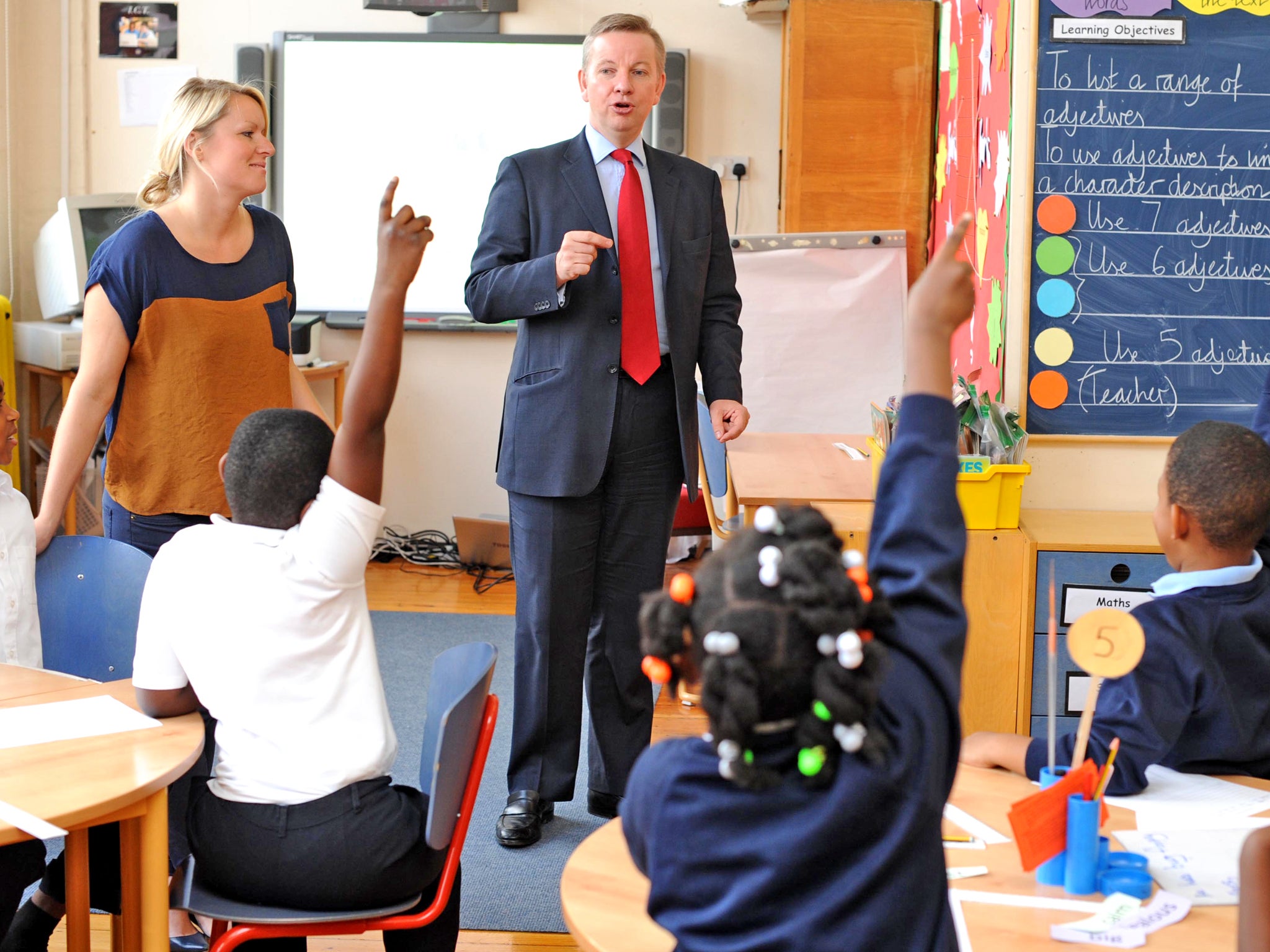Michael Gove on Radio 4: Doesn't a discussion about teaching History need a teacher on the panel?
The BBC should be doing much more to take schoolteaching seriously


Your support helps us to tell the story
From reproductive rights to climate change to Big Tech, The Independent is on the ground when the story is developing. Whether it's investigating the financials of Elon Musk's pro-Trump PAC or producing our latest documentary, 'The A Word', which shines a light on the American women fighting for reproductive rights, we know how important it is to parse out the facts from the messaging.
At such a critical moment in US history, we need reporters on the ground. Your donation allows us to keep sending journalists to speak to both sides of the story.
The Independent is trusted by Americans across the entire political spectrum. And unlike many other quality news outlets, we choose not to lock Americans out of our reporting and analysis with paywalls. We believe quality journalism should be available to everyone, paid for by those who can afford it.
Your support makes all the difference.Start the Week on Radio 4 held a lively discussion yesterday on the teaching of History in schools. The key panellist was Education Secretary Michael Gove, who outlined his views on the subject with customary bite. Fellow panellists were Margaret MacMillan, professor of International History at Oxford and author of a new book on the First World War; Simon Schama, professor of History at Columbia University in New York; and author Tom Holland, translator of Herodotus, and presenter of Radio 4’s Making History. It was an entertaining discussion listened to by inflated numbers enjoying the Monday between Christmas and New Year off work.
Notice anything funny about the line-up? Let me repeat the purpose of the programme: a discussion of the teaching of History in schools. The omission of any schoolteacher from a discussion like this is so common that probably only a small portion of listeners would have found it odd. Yet can you imagine the BBC hosting a legal programme without inviting practising solicitors or barristers on it? A medical discussion with no voice for serving medics? Or a programme about any other profession which failed to invite on air a member of that profession? Of course not. But the failure to take schoolteaching as seriously as other professions is so prevalent that we have ceased to notice, or perhaps even care. That does not mean that Start the Week should not be criticised for being patronising.
The fault did not lie with the panellists themselves. Michael Gove would have much preferred himself to have done battle with real schoolteachers who know the terrain. The topic is of immense importance – is there a subject in the curriculum that is more open to choice, or whose content has more power to shape beliefs and actions, than History? The History curriculum is an open door at present. The subject cried out for knowledgeable debate. A significant opportunity was squandered.
Schools are full of historians who have achieved outstanding degrees, many of whom have doctorates in the subject. They will have reflected long and hard on the most appropriate content to offer the young to enable them to understand the past and the present better. Such a figure on Start the Week would have brought to the discussion a deep knowledge about how young people learn, what mixture of narrative and analysis is suitable for young people of different ages and abilities, and what topics, periods and countries are essential for students to have studied before they leave school.
A schoolteacher on the panel would not even have needed to be a historian. Geoff Barton, the headteacher of King Edward VI, a state school in Bury St Edmunds, is a figure with a profound understanding of the school curriculum and the needs of young people. He has written extensively on the subject. Or the programme could have invited on Martin Stephen, former head of three schools including St Paul’s in London, and author of historical novels as well as works on naval history and the poetry of the First World War. BBC researchers could easily have tracked down a wealth of suitable figures from schools both state and independent. It would help the cause if more teachers spoke out,
The BBC should be doing much more to take schoolteaching seriously. Tens of thousands of potential schoolteachers would have listened to the programme yesterday morning. They could have been inspired to join the profession by listening to a passionate and articulate schoolteacher talking. No career is in greater need of able, caring and committed new entrants than teaching. It is only since I have become executive principal of Wellington Academy in Wiltshire that I have realised the full extent of the need to bring top-quality recruits into the profession, especially in subjects such as Maths, Science and Modern Languages. Raising the status of the profession is fundamental to this quest. We need young people to be bursting with pride when they say they want to become a teacher, and for it to equal the status (if not perhaps the pay) of a doctor.
The BBC does much to ensure a fair representation on its programmes of different genders, regions and ethnicities. It needs to do a better job taking schools and teaching seriously. Early next month, BBC 3 airs a documentary following a group of “Teach First” graduates through their experiences in the classroom. Let’s hope that this programme will be the harbinger of radically new thinking, and that Start the Week’s cavalier omission will not be repeated.
Anthony Seldon is master of Wellington College and executive principal of Wellington Academy.
Join our commenting forum
Join thought-provoking conversations, follow other Independent readers and see their replies
Comments